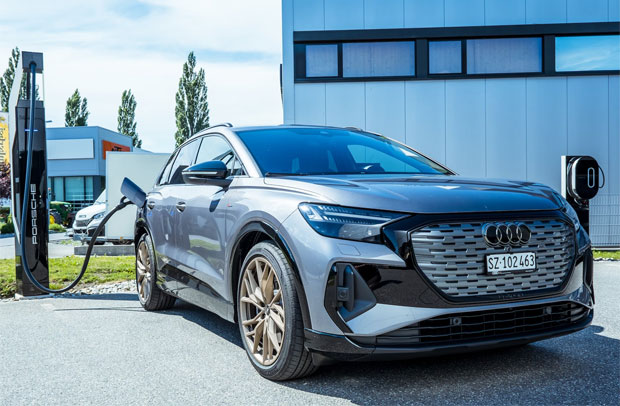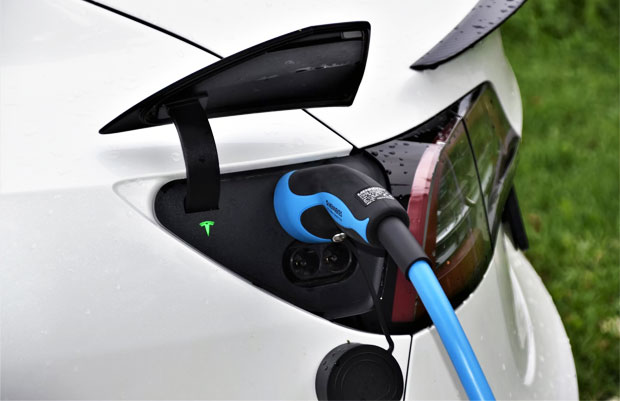Newly Made EU Vehicles Must Be Free from Pollutants from 2035

Newly Made EU Vehicles Must Be Free from Pollutants from 2035
Almost all European Union countries, except Poland, have accepted a new law that guarantees that beginning 2035, all new vehicles sold should be zero-emissions. Romania, Bulgaria, and Italy did not vote. Additionally, Germany asked for carbon-neutral e-fuel-powered vehicles to be exempted, so there were several weeks of delay to the agreement.
With the exemption, owners of traditional vehicles will now have something to look forward to, even if there is no definite timetable yet for the large-scale production of e-fuels. The selling of e-fuel-powered vehicles, however, may resume later in the year.
As per the European Commission, carbon dioxide (CO2) emissions in the EU come from vans (2.5%) and passenger vehicles (12%).
With the new law, carbon dioxide emissions from new vehicles should be reduced by at least 55% starting in 2030, specifically when compared to levels in 2021. The majority of the countries in the EU will implement this new limit.
While the new law has been approved, tensions are still high about the union’s green deal, which is expected to fast-track Europe’s zero-carbon emissions goal by the year 2050. Some countries also expressed their concern that the union’s decision-making can be affected by the dispute.
Included in the draft of the new law is a clause authorising officials to analyse the progress of the diesel and petrol vehicle phase-out in 2026, in addition to available new technologies and how these can help achieve the EU’s goals.
Long before giving Germany the freedom to delay the approval and request for e-fuels exemption, authorities had already completed a draft for laws concerning CO2-neutral-fuelled vehicles.
Talking about the new law, the European Association for Machinery and Equipment Manufacturers called it a breakthrough legal decision that can propel the zero-emissions target towards the right direction.
Emissions are toxic gases released by diesel-powered vehicles. These air pollutants can destroy vegetation and shorten human lives. Nitrogen oxide or NOx emissions were at the centre of the controversial Dieselgate scandal that started in 2015.
What happened during the Dieselgate scandal?
The Volkswagen Group was accused of placing defeat devices in VW and Audi diesel-powered vehicles. US authorities discovered the cheat software and sent a Notice of Violation to the carmaker while also ordering them to recall the hundreds of thousands of affected vehicles. A fine was also set and the VW Group had the pay the specified amount.
Authorities described defeat devices as tools for manipulating emissions during a regulatory test. A defeat device can sense when the testing is about to happen, and it will artificially reduce emission levels so these would match the legal limits. In reality, though, the device hides real emissions so the vehicle would appear clean and safe.
The reduced emissions are only temporary because as soon as the vehicle is driven on real roads, it releases excessive volumes of NOx emissions. As such, defeat device-equipped diesel vehicles are heavy pollutants.
VW lied to their customers and cared more about making a profit than protecting consumers. Affected drivers – and the public – are exposed to life-changing NOx emissions.
Months after US authorities discovered the devices on VW vehicles; they allegedly found the same software in Mercedes-Benz diesel vehicles. BMW, Renault, and Vauxhall, among others, were also implicated in the diesel emissions scandal.
Along with VW and Mercedes’ parent company Daimler, BMW was also caught participating in a cartel that limited technology for cleaner emissions. They violated antitrust laws and had to pay millions in fines.
Over the years, the number of carmakers involved in the scandal has continually increased. Peugeot, UK’s Vauxhall, global favourite brand Toyota, and Japan’s Nissan are also on the list of affected vehicles. It seems like the list is getting longer every day even if it’s been almost eight years since the diesel emissions scandal first erupted.

Impacts
Authorities and legal firms across the world are encouraging affected car owners to file a diesel claim against their carmakers. There are several reasons for this, foremost of which are the environmental and health impacts of NOx emissions.
Nitrogen oxides contain nitric oxide (NO) and nitrogen dioxide (NO2) and contribute to the formation of acid rain and smog. NOx also produces pollutants, such as ground-level ozone, which can destroy vegetation.
Health impacts vary from mild to severe:
- Mental health – depression and anxiety (more frequent attacks)
- Unstable cognitive health resulting in dementia
- Asthma
- Respiratory diseases that can turn into COPD
- Laryngospasm
- Pulmonary oedema
- Cancer
- Asphyxiation
- Cardiovascular conditions
In recent years, reports have consistently identified air pollution (or NOx emissions) as a primary cause of the thousands upon thousands of premature deaths across the world.
Should I file my diesel claim now?
There is no better time to start your diesel claim than now. First off, though, you have to check with Emissions.co.uk if you are qualified to file a claim. They are currently taking claims on against BMW, and you can find all the details here – https://www.emissions.co.uk/manufacturers/bmw/. Once you have all the details you need, you can meet with an emissions expert and begin planning your emission claim. You’ll have to decide whether to file an individual case or join a group litigation action.
You can start your diesel claim even if you have a tight budget because filing a case will not cost you anything. If you win, you will receive compensation, the amount of which will depend on the circumstances of your case.
Guest Article.




